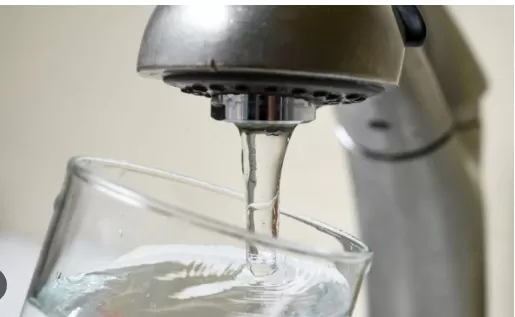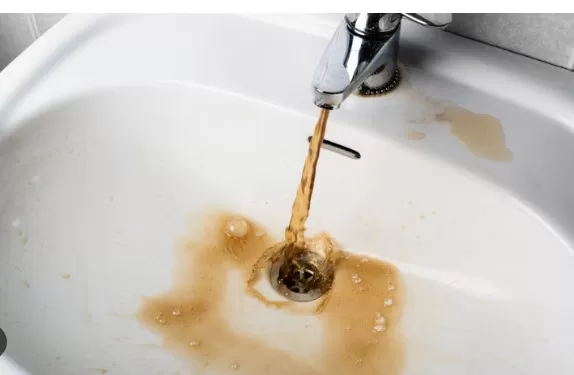Resolving Common Water Issues: Effective Solutions. If you’ve noticed a strange odor, unpleasant taste, or stains on your plumbing fixtures, cookware, dishes, and laundry, it’s important to investigate the reasons behind these issues. One potential culprit could be hard water, which contains high levels of minerals like calcium and magnesium.
Hard water can not only affect the smell and taste of your water but also leave behind mineral deposits that stain surfaces. Another factor to consider is chlorine, which is commonly used to disinfect water but can leave an undesirable taste and odor. By understanding the causes of these water-related problems, you can take appropriate measures to address them and improve the overall quality of your water.
Funky Water: Common Problems and Practical Solutions for Clean Water

While access to clean water is often taken for granted, many Americans experience issues with the water coming out of their faucets.
Problems such as discoloration, unpleasant taste, odors, or even hidden bacteria can occur, particularly in older homes or those relying on well water. In this guide, we will explore some of the most common water problems and provide practical solutions to help you ensure clean and safe water in your home.
Let’s delve into the details!.
Problem 1: Discoloration Discolored water can be caused by various factors, including rust, minerals, or sediment.
It can appear brown, yellow, or even green. To address this issue, consider installing a sediment filter or a whole-house water filtration system.
Regularly flushing your plumbing system and checking for corroded pipes can also help eliminate discoloration.
Problem 2: Bad Taste Unpleasant tastes in tap water can be attributed to various reasons, such as high chlorine levels, dissolved minerals, or organic compounds.
To improve the taste of your water, consider using activated carbon filters or pitcher filters. These options effectively reduce chlorine and other contaminants that affect the taste.
Problem 3: Odors Foul odors in tap water are often caused by bacteria, algae, or decaying organic matter.
One practical solution is to install an activated carbon filter or a point-of-use filter with a granulated activated carbon cartridge. These filters are effective in removing odor-causing compounds, providing odor-free water for your daily use.
Problem 4: Bacteria Contamination In some cases, bacteria can contaminate well water or poorly maintained plumbing systems, leading to potential health risks.
To address this issue, it is essential to regularly test your water for bacteria and other harmful microorganisms. If bacteria are detected, disinfection methods such as chlorination or ultraviolet (UV) treatment can be employed to eliminate them.
Battling Hard Water Woes: Managing Excess Minerals for Optimal Water Quality
Hard water, characterized by the presence of excessive calcium and magnesium minerals, poses several challenges for homeowners.
The accumulation of these minerals can lead to the formation of lime scale, which can hinder the efficiency of pipes and potentially cause permanent damage. In this guide, we will explore the problem of hard water and discuss a practical solution to manage it effectively. Let’s delve into the details!.
Problem: Excess Minerals and Lime Scale Formation Hard water contains elevated levels of calcium and magnesium minerals, which can accumulate and form lime scale in pipes and fixtures.
This build-up not only reduces water flow and decreases the efficiency of appliances but can also cause permanent damage over time.
Management: Home Water Softeners and Ion Exchange A home water softener is an effective solution for managing hard water.
These systems utilize a process called ion exchange to remove the excess minerals. Water is passed through a water softening appliance filled with a sodium solution.
During this process, sodium ions replace the calcium and magnesium ions in the water, effectively reducing water hardness.
Benefits of Water Softeners By installing a home water softener, you can enjoy several benefits:.
Prevention of Lime Scale Build-Up: Water softeners minimize the formation of lime scale in pipes, appliances, and fixtures, thus improving their longevity and performance.
Enhanced Efficiency: Softened water enables appliances to operate more efficiently, reducing energy consumption and saving money on utility bills. Improved Water Quality: Softened water provides a better lathering experience, reduces soap scum, and leaves dishes, clothes, and surfaces cleaner and shinier.
Protection of Plumbing System: By eliminating the damaging effects of hard water on pipes, water softeners help maintain a healthy and functional plumbing system. Considerations for Water Softener Installation When selecting and installing a water softener, it is essential to consider factors such as water hardness levels, household water consumption, and the capacity of the system to meet your needs.
Consulting a water treatment professional can help determine the appropriate size and type of water softener for your specific requirements.
Tackling Iron and Manganese: Effective Management for Clear and Tasteful Water

Iron and manganese, commonly found in groundwater supplies, can cause various issues, including cloudy or rusty water appearance, stains on plumbing fixtures and laundry, and a metallic or astringent taste.
These minerals can be a nuisance for homeowners, but there are management solutions available to address these concerns. In this guide, we will explore the problems associated with iron and manganese in water and discuss effective management strategies.
Let’s dive into the details!.
Problem: Cloudy Water, Stains, and Metallic Taste The presence of iron and manganese in water can lead to the following problems:.
Cloudy or Rusty Water Appearance: Iron and manganese can give water a cloudy or rusty appearance, making it less appealing for everyday use.
Stains on Fixtures and Laundry: These minerals can cause dark brown or rust-colored stains on plumbing fixtures, cookware, and laundry, which can be challenging to remove. Metallic or Astringent Taste: Water containing iron and manganese often has a metallic or astringent taste, which can be off-putting for drinking and cooking.
Management: Water Treatment Options To effectively manage iron and manganese in water, several treatment options can be considered:.
Conventional Water Softener: A standard water softener can remove moderate levels of ferrous iron, typically up to 5 parts per million (PPM).
The ion exchange process in water softeners can help reduce the iron content in the water, improving its appearance and taste.
Specialized Iron Removers: Some water softeners have specialized features designed specifically to target and remove iron from the water supply.
These iron removers are capable of handling higher iron concentrations and can be a suitable choice for homes with more significant iron-related issues.
Oxidizing Filters: Oxidizing filters, such as catalytic carbon filters or greensand filters, are effective in treating higher levels of iron and manganese.
These filters use oxidation reactions to convert iron and manganese into solid particles that can be easily filtered out, resulting in clearer water.
Colloidal Iron Filters: Colloidal iron filters are designed to remove very fine iron particles that may pass through other filtration systems.
These filters employ specialized media that can capture and remove colloidal iron, ensuring cleaner water.
Considerations for Water Treatment When selecting a water treatment system for iron and manganese removal, it is crucial to consider the concentration of these minerals in your water supply, the desired flow rate, and the specific requirements of your household.
Consulting a water treatment professional can help determine the most suitable treatment option based on your needs.
Banishing the Rotten Egg Odor: Managing Hydrogen Sulfide in Water

Hydrogen sulfide in water is a common issue that can lead to an unpleasant odor resembling rotten eggs or sulfur.
Apart from the foul smell, this colorless gas is highly corrosive to metal pipes, causing them to turn black and eventually leading to leaks. In this guide, we will explore the problem of hydrogen sulfide in water and discuss effective management strategies.
Let’s dive into the details!.
Problem: Rotten Egg Odor and Corrosion The presence of hydrogen sulfide in water can cause the following problems:.
Rotten Egg Odor: Hydrogen sulfide produces a distinct rotten egg or sulfur-like odor, which can make water unpleasant to use and consume.
Corrosion of Metal Pipes: This gas is highly corrosive to metal pipes, leading to the formation of black deposits and potentially causing leaks and damage to the plumbing system. Management: Multi-Stage Filtration Approach To effectively manage hydrogen sulfide in water, a multi-stage filtration approach is necessary.
Here’s an overview of the recommended filtration process:.
Chlorination: The first step involves chlorination, where a small amount of chlorine is added to the water supply.
Chlorine helps to oxidize hydrogen sulfide, converting it into a solid precipitate that can be filtered out. This process also helps eliminate any bacteria or other microorganisms that may contribute to the odor.
Sedimentation and Aeration: After chlorination, the water passes through a sedimentation tank to allow the precipitated particles to settle.
Aeration is then used to expose the water to air, which helps release the remaining hydrogen sulfide gas. The combination of sedimentation and aeration aids in further reducing the concentration of hydrogen sulfide.
Activated Carbon Filtration: The final stage involves passing the water through an activated carbon filter.
Activated carbon is highly effective in removing residual hydrogen sulfide and excess chlorine, ensuring the water is free from odor and taste issues. The activated carbon filter also helps remove other impurities, improving the overall water quality.
Considerations for Filtration System Selection When selecting a filtration system for hydrogen sulfide removal, consider factors such as the concentration of hydrogen sulfide in your water, flow rate requirements, and the specific needs of your household.
Consulting a water treatment professional can help determine the most suitable filtration system and design a tailored solution for your water quality needs.
*The information is for reference only.